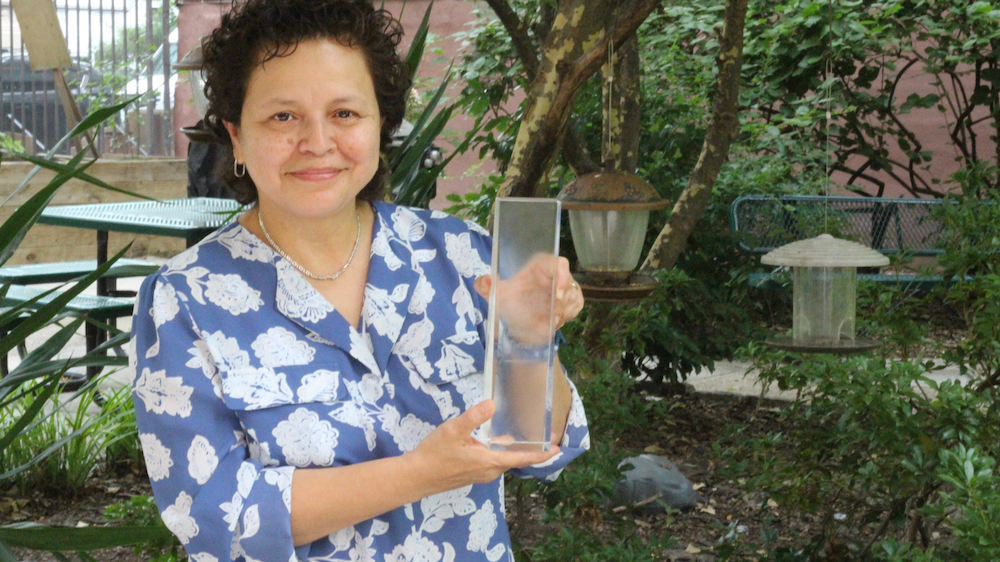“You have to empower people and they need to give of themselves, not just receive.”

It’s been an exciting summer at Phelps House: Our affordable residence for older adults turned 40, and its social services director, Rebecca Torres, was honored with a Latin Impact Award for her service to the community.
Phelps House provides 167 units of affordable one- and two-bedroom apartments for older adults and people with disabilities. While it’s an independent living residence, it also offers a range of supportive services for longtime tenants who’ve aged into their 80s, 90s and 100s.
Staff and tenants celebrated the 40th anniversary with a deluxe barbeque in Phelps Garden, featuring music, dancing and cake. Our City Council member, Gale Brewer, stopped by to join in the festivities.
Rebecca Torres was recognized for her “compassionate and dedicated” service at the Latin Impact Awards ceremony on July 27. She has overseen activities and services at Phelps House since 2012.
“I think the perception of old age is that people are feeble and can’t do much for themselves,” she said. “But our tenants are very much alive and active and want to do things. They’re always asking, ‘Can I make something for the party, can I organize an event?’”
It’s important to harness that energy, she added: “I’m a big believer that you have to empower people and they need to give of themselves, not just receive.”
Torres has been a social worker for more than 20 years. She approaches the work from a place of deep empathy, having been through her own challenges. At the age of 15, her family moved from Costa Rica to the Bronx. It was a difficult age to emigrate: “You’re self-conscious about speaking the language. You don’t want to leave your friends.” When the immigration papers arrived in the mail, she and her 14-year-old sister hid them, but “the embassy sent them again,” she recalled wryly.
They arrived to a city in crisis. The Bronx was burning; whole blocks were wastelands. She went to a series of schools, some good, some struggling; she taught herself English from music and Sesame Street. Eventually she left school without a degree. “My new school didn’t have a bilingual program so I dropped out,” she said. “I was also figuring out I was gay and trying to hide it.”
She got her GED and enrolled in college, but life continued to be turbulent: “I started doing the wrong things with the wrong crowd.” She began degrees in Psychology and Design but didn’t finish them. It was only in her late 20s, working on a psychology degree again, that things started to fall into place. She began to thrive academically, graduating summa cum laude. And when she interned at Gay Men’s Health Crisis, she found her direction in life. “I fell in love with it,” she recalled. “I started thinking about social work.”
Asked whether she draws on her struggles as a teen and young adult in her work, Torres tells this story: “Once I had to ask my therapist for a letter in order to qualify for something. I was so ashamed. But she said ‘One day when you’re a social worker and someone asks you for something, you’ll never look down on them. Because you know how hard it is to ask for help.’ And it’s true.”
When she’s not working, Torres loves creating art, restoring furniture and landscaping at the home she shares with her wife and their Schnauzer. She says working with older adults has taught her not to wait until retirement to pursue the things she enjoys. “They inspire us and teach us that life is short,” she said. “You gotta take care of yourself and live every day like it’s your last day. It’s scary but empowering.”